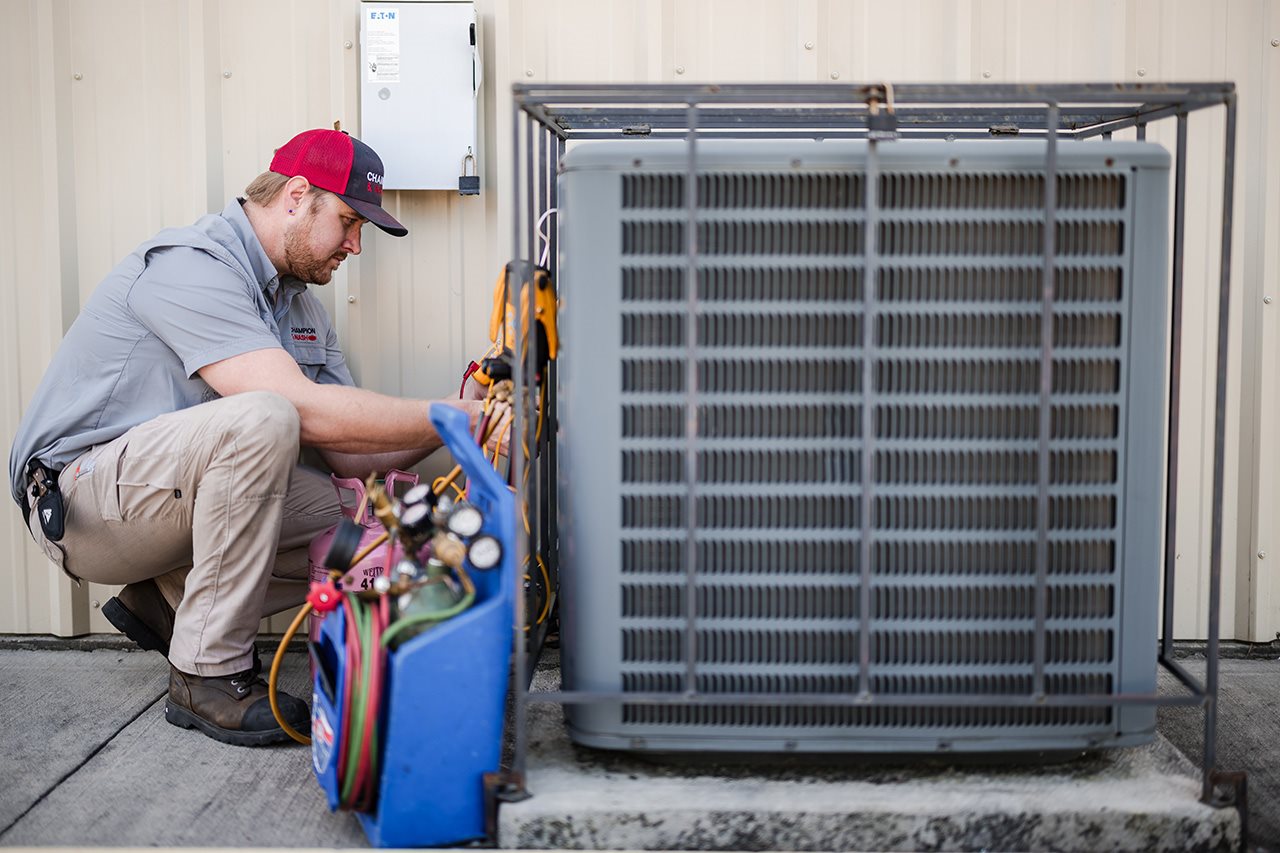As a Houston homeowner, you know that the summer brings more than just sunshine. Scorching heat, humidity and storms are all part and parcel of the summer season.
While you can't control the weather, you can prepare your home to beat the heat. Champion & Nash wants to help you have a fun and carefree season. For over 40 years, the company has provided Houston with a wide variety of HVAC services. Check out a few expert tips from General Manager Seth Mapp and his team at Champion & Nash, to help your HVAC work as efficiently as possible so you can save money and avoid breakdowns when you need your AC the most.

1. Have your HVAC system maintained by a professional
When was the last time you had your HVAC serviced? With the summer months coming, your HVAC system will need to work harder to maintain a comfortable temperature in your home. Without routine maintenance, you'll end up paying more and risk an expensive breakdown down the road.
Once or twice a year, hire a licensed, reputable heating and cooling provider who not only can identify and fix any issues, but can also educate you on any issues you may experience over the coming season. An expert provider like Champion & Nash can give you tailored feedback on your specific system and lifestyle needs, so you can avoid an unexpected breakdown that derails your Fourth of July party.
Having your HVAC serviced before storm season can also help you submit insurance claims. A provider can provide documentation after a service appointment as proof that the system was functional before the storm. For example, the technicians at Champion and Nash record models and serial numbers from your system, which can help with any damage claims.
2. Change your filters
A common issue HVAC technicians see is excessively dirty filters. Dirty filters cause your system to use much more energy than necessary. It's like breathing through a straw; it can be done, but it is not ideal! Keep your HVAC clean by regularly changing the filters to improve efficiency and avoid preventable breakdowns.
About once a month, change the 1-inch filter found in the filter grills. Pleated 4- to 5-inch filters located at the entrance to the furnace should be changed annually or every six months, depending on your home needs.
3. Keep registers and vents clear
Check your system's registers or vents and make sure they aren't closed off or blocked. Any restrictions on the air stream flowing into or out of your HVAC system can cause it to work harder to maintain a comfortable temperature in your home. When your HVAC has to work hard, it uses more energy, which means a higher electric bill.
4. Raise your thermostat
Did you know that a single degree change can save energy and money? By raising your thermostat, you improve your HVAC's efficiency and lower your bill.
According to the Department of Energy, each degree of change to your set temperature can equate to a 3% increase or decrease in overall energy usage. If you are able, raise your AC's temperature from 72 degrees to 74 degrees. It could potentially save you up to 12% on energy bills.
5. Clean around the condenser
As you take care of your yard tasks, make sure to clear the area around your condenser. Bushes, tall grasses, or other obstacles can impede airflow to the condenser, increasing energy usage and leading to potential breakdowns. When storms roll through, loose objects could hit your system, damaging the condenser, so make sure to remove or secure them beforehand.
6. Turn on the AC and listen
Don't ignore strange noises! Turn on your AC and listen. If the system doesn't seem to be cooling well or makes odd sounds, you may be on the way to a breakdown.
Don't wait. Have your HVAC serviced by a licensed and reputable provider (like Champion & Nash) as soon as possible. Waiting until it stops working altogether can cause worse disruptions to your life. During the hot Houston summer, providers get overwhelmed with requests for service. Service delays aren't just inconvenient. Any HVAC damage may be substantially worse if not addressed early.
Bonus: Tips for protecting your HVAC during storms
An unfortunate reality of living on the Gulf Coast is the ever-present threat of hurricanes during the season. In addition to having your HVAC serviced, Champion & Nash encourages every homeowner to take these simple steps before the presence of a storm in the Gulf.
Install surge protectors: Power outages are a common occurrence during a storm. Often, when the power is restored, the in-rush of electrical current can cause damage to sensitive electronics. By installing surge protectors, you can help prevent damage to electrical components, including HVAC.
Consider installing a soft-start: If you have a generator for backup power during a storm, the amperage draw of the condenser can exceed the circuit maximum for most portable generators. Soft-starts can reduce the amperage required for the startup of the condenser by up to 70%, allowing a generator to safely run your home air conditioning system.
Know how to safely turn off power: The best way to protect your expensive HVAC equipment during a storm is to isolate the system by turning off the breaker and providing power. Opening the breaker helps to protect against electrical shorts or damage from flooding.
Stay ahead of the heat by scheduling a tune-up
Be proactive and ensure you're comfortable this summer by scheduling an HVAC system maintenance service.
"As with any mechanical system, your home HVAC system is complex and intimidating for those unfamiliar with their service and maintenance," said Seth Mapp, GM at Champion & Nash. "Your local licensed and reputable provider is standing by to assist with any of the tips above and much, much more."
To learn more and schedule an appointment, visit https://championandnash.com/.



